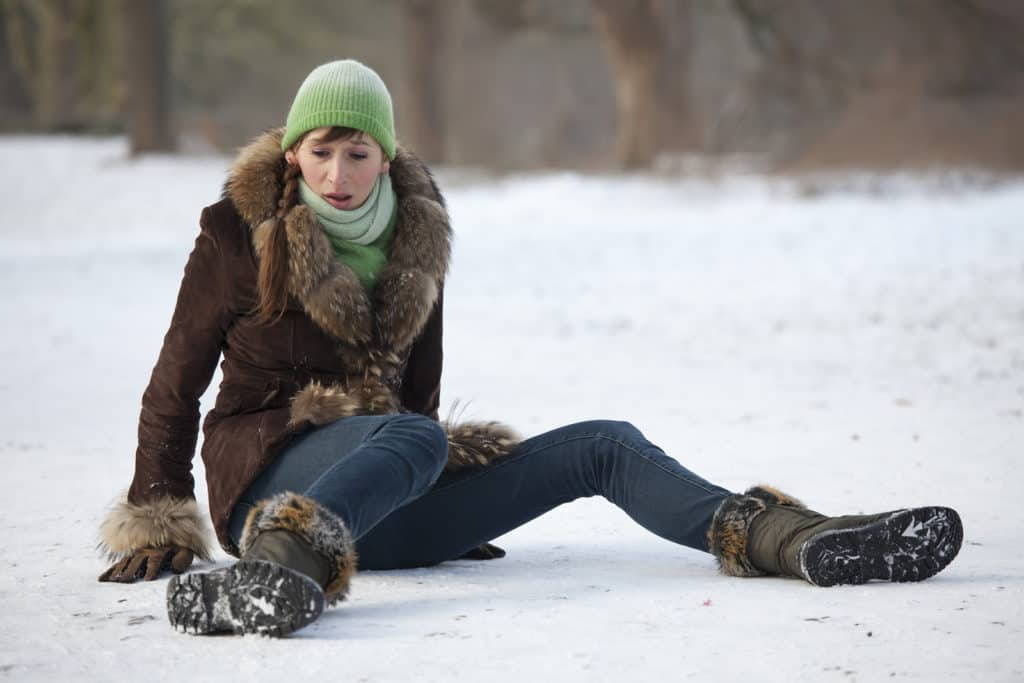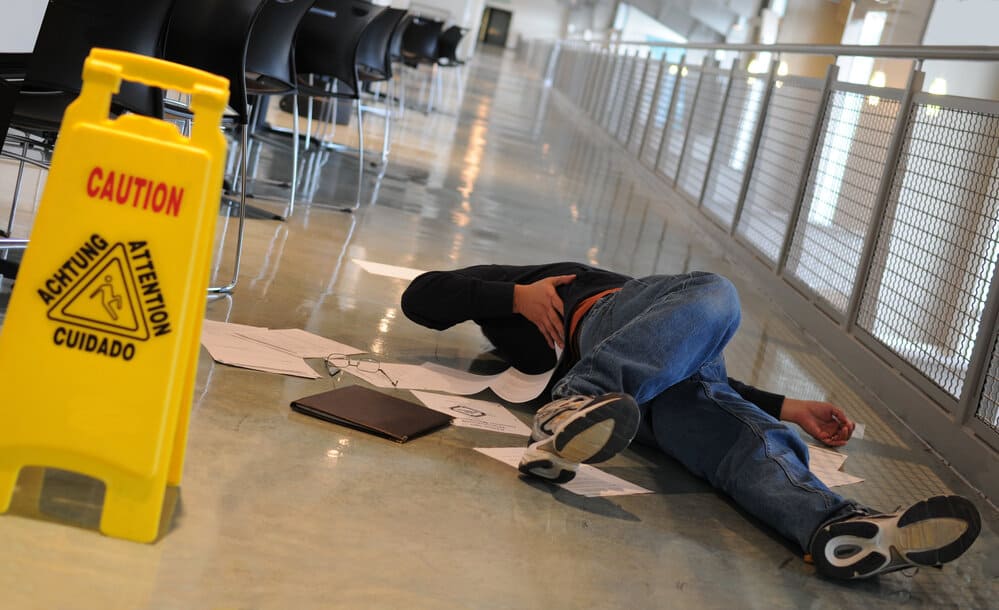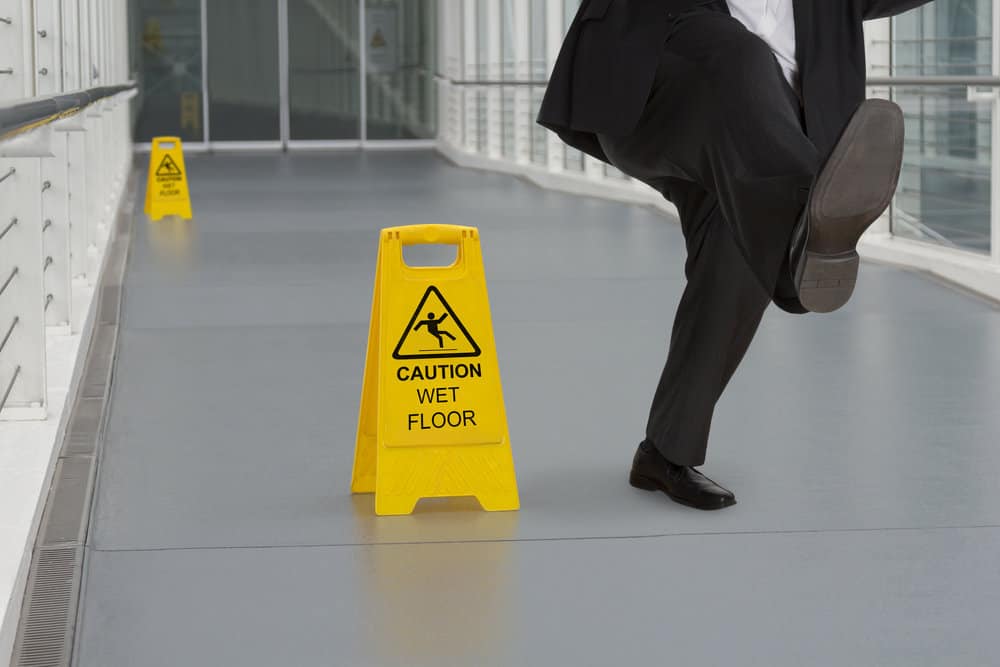Premises liability is an area of law that holds property owners responsible for injuries on their premises. This can include accidents such as slips and falls, dog bites, and other incidents that result in injury or harm to visitors. Understanding premises liability is important for anyone who owns or operates a property and those who have been injured while on someone else’s property.
Property owners must generally maintain their premises reasonably safe and warn visitors of any known hazards. However, property owners’ specific duties and responsibilities can vary depending on the circumstances. For example, a property owner may have a higher duty of care to invitees. These visitors have been invited onto the property for a specific purpose, then licensees on the property for their purposes. Understanding these distinctions is important for anyone involved in a premises liability case.
Key Takeaways
- Premises liability holds property owners responsible for injuries that occur on their property.
- Property owners must keep their premises safe and warn visitors of any known hazards.
- Property owners’ specific duties and responsibilities can vary depending on the circumstances.
Understanding Premises Liability
Premises liability is a legal concept that holds property owners and occupiers responsible for injuries or damages on their property. Property owners and occupiers have a legal duty to ensure their premises are safe for visitors and guests. This duty of care requires them to take reasonable steps to prevent harm to others.
The standard of care that property owners and occupiers must meet varies depending on the circumstances. For example, a property owner or occupier may be required to repair a dangerous condition, warn visitors of potential hazards, or take other steps to prevent harm.
To establish liability in a premises liability case, the injured party must prove that the property owner or occupier breached their duty of care and that this breach caused their injuries. This can be a complex legal process, and it is important to consult with an experienced premises liability attorney if you have been injured on someone else’s property.
Entities such as businesses, landlords, and homeowners can all be held liable for injuries on their property. It is important to note that liability can extend beyond the physical boundaries of the property. For example, a property owner may be liable for injuries in a parking lot or on a sidewalk adjacent to their property.
In conclusion, understanding premises liability is crucial for property owners, occupiers, and individuals injured on someone else’s property. By understanding the legal concept, duty, duty of care, and standard of care, individuals can better protect themselves and hold negligent property owners accountable for their actions.
Roles and Responsibilities
Property Owners
Property owners are responsible for maintaining their premises safe for visitors. They must take reasonable care to ensure that their property is free from hazards that could cause injury or harm to visitors. Property owners must warn visitors of any known dangers that may not be obvious to the average person.
Regarding liability, property owners are held to different standards depending on the visitor’s status. For example, if the visitor is an invitee, the property owner is responsible for ensuring that the premises are safe and free from hazards. If the visitor is a licensee, the property owner must warn them of any known dangers that may not be obvious.
Visitors
Visitors are also responsible for exercising reasonable care when on someone else’s property. They must be aware of their surroundings and avoid any hazards that may be present. Visitors should also follow any rules or instructions provided by the property owner.
The liability of visitors also depends on their status. For example, if the visitor is a trespasser, they have limited rights, and the property owner is not responsible for their safety. However, the property owner must ensure their safety if the visitor is an invitee or licensee.
Overall, property owners and visitors need to understand their roles and responsibilities regarding premises liability. By taking reasonable care and following established guidelines, both parties can help prevent accidents and injuries on the property.
Types of Visitors
Premises liability is a legal concept that holds property owners responsible for injuries sustained by individuals on their property. One of the key factors determining the level of duty owed by a property owner to a visitor is the visitor’s status. There are three main types of visitors: invitees, licensees, and trespassers.
Invitees
Invitees are individuals who have been invited onto a property for the property owner’s benefit. Examples of invitees include customers in a store, attendees at a concert or sporting event, or individuals attending a party hosted by the property owner. Property owners owe the highest duty to invitees and must take reasonable steps to ensure their safety. This includes regularly inspecting the property for hazards and warning invitees of known dangers.
Licensees
Licensees are individuals who have been granted permission to enter a property for their own purposes. Examples of licensees include social guests, friends, or family members who have been invited to a property. Property owners owe a slightly lower duty level to licensees than to invitees. However, property owners must still warn licensees of any known dangers on the property.
Trespassers
Trespassers are individuals who enter a property without permission. Property owners owe the lowest level of duty to trespassers. However, property owners cannot intentionally harm trespassers and must take reasonable steps to prevent harm to trespassers if they are aware of their presence.
In conclusion, understanding the different types of visitors is essential for property owners to ensure their property is safe and avoid potential legal liability.
Common Premises Liability Cases
Slip and Fall Accidents
Slip and fall accidents are among the most common premises liability cases. These accidents can occur anywhere, from grocery stores and restaurants to sidewalks and parking lots. Slip and fall accidents can result in serious injuries, including broken bones, head injuries, and spinal cord injuries.
Property owners must keep their premises safe for visitors. This includes regularly inspecting the property for hazards and promptly addressing any issues. Hazards that can cause slip-and-fall accidents include wet floors, uneven surfaces, and debris on the ground. If a property owner fails to maintain a safe environment and someone is injured, the owner may be liable for the victim’s injuries.
Swimming Pool Accidents
Swimming pool accidents are another common type of premises liability case. Property owners with swimming pools on their premises must ensure that the pool area is safe for visitors. This includes maintaining proper fencing and gates, providing appropriate warning signs, and ensuring the pool is properly maintained and hazards-free.
Swimming pool accidents can result in serious injuries or even death. Common causes of swimming pool accidents include slippery surfaces, inadequate fencing, and lack of supervision. If a property owner fails to take appropriate measures to ensure the safety of visitors and someone is injured. As a result, the owner may be held liable for the victim’s injuries.
Premises liability cases can be complex and challenging to navigate. If you have been injured in an accident on someone else’s property, it is important to seek the advice of an experienced attorney. They can help you understand your legal rights and options and work to ensure that you receive the compensation you are entitled to.
Negligence and Premises Liability
Premises liability refers to the legal responsibility of property owners to ensure that their premises are safe for visitors. Negligence is a key concept in premises liability law. Negligence occurs when a property owner fails to take reasonable care to ensure that their property is safe, harming a visitor.
In premises liability cases, negligence can take many forms. For example, a property owner may fail to repair a broken stair or railing or remove a hazardous substance from the floor. In other cases, a property owner may fail to provide adequate security measures, leading to injuries or assaults.
When a visitor is injured due to a property owner’s negligence, the visitor may be able to recover damages for their injuries. However, the visitor’s negligence may also be a factor. Comparative negligence and contributory negligence are legal concepts that may be used to determine how much a visitor’s actions contributed to their injuries.
Comparative negligence is a legal doctrine allowing a court to apportion fault between the plaintiff and the defendant in a negligence case. If a court finds that a plaintiff was partially responsible for their injuries, it may proportionate the plaintiff’s damages award.
Contributory negligence is a legal doctrine that may be used in some states to bar a plaintiff from recovering damages if the plaintiff’s own negligence contributed to their injuries. However, many states have moved away from contributory negligence in favor of comparative negligence.
In premises liability cases, property owners may be held liable for their negligence and the negligence of their employees. For example, if a property owner hires a security guard who assaults a visitor, the property owner may be liable for the guard’s actions.
Overall, negligence is a key concept in premises liability law. Property owners must take reasonable care to ensure that their premises are safe for visitors, and failure to do so can result in legal liability.
Filing a Premises Liability Claim
Injury Claim Process
When someone is injured on someone else’s property, they may be able to file a premises liability claim. The process for filing an injury claim can vary depending on the specific circumstances of the incident. However, there are some general steps that most people will need to follow.
First, the injured person should seek medical attention as soon as possible. This is not only important for their health and well-being, but it can also provide important evidence for the claim. The medical records can show the extent of the injuries and the costs associated with treatment.
Next, the injured person should notify the property owner or manager of the incident. This should be done in writing and as soon as possible. The notification should include a description of the incident and the injuries sustained.
After notification, the injured person should gather as much evidence as possible. This can include witness statements, photographs, and any other documentation related to the incident. The more evidence that is gathered, the stronger the claim will be.
Finally, the injured person should consult with a premises liability attorney. An attorney can help the injured person navigate the legal process and ensure that their rights are protected.
Compensation
If a premises liability claim is successful, the injured person may be entitled to compensation. The compensation can include both economic and non-economic damages.
Economic damages such as medical expenses and lost wages can be easily quantified. Non-economic damages are more subjective and can include pain and suffering, emotional distress, and loss of enjoyment of life.
The amount of compensation a person can receive will depend on the specific circumstances of their case. An experienced attorney can help the injured person understand their rights and options.
Damages
In a premises liability claim, the damages that can be recovered will depend on the specific injuries sustained. Some common damages include:
- Medical expenses
- Lost wages
- Pain and suffering
- Emotional distress
- Loss of enjoyment of life
Again, the amount of damages that can be recovered will depend on the case’s specific circumstances. An experienced attorney can help the injured person understand their rights and options.
Legal Rights and Defenses
Regarding premises liability cases, both the defendant and plaintiff have legal rights and defenses that they can use to pursue or refute a lawsuit. Understanding these rights and defenses is crucial for anyone involved in a premises liability case.
The plaintiff, or the person injured on someone else’s property, has the legal right to sue the defendant for damages. This includes compensation for medical bills, lost wages, and pain and suffering. However, the plaintiff must prove that the defendant was negligent in maintaining their property and that this negligence directly caused their injury.
On the other hand, the defendant has several defenses that they can use to refute a plaintiff’s claim. One defense is that the plaintiff was trespassing on their property at the time of the injury. Another defense is that the plaintiff was aware of the hazard that caused their injury and assumed the risk of injury.
It’s important to note that premises liability laws vary from state to state, so it’s crucial to consult with a lawyer familiar with the laws in your state. Additionally, both the plaintiff and defendant should gather as much evidence as possible to support their case, such as witness statements, photographs, and medical records.
In summary, the plaintiff and defendant have legal rights and defenses in premises liability cases. Understanding these rights and defenses is important to pursue or refute a lawsuit effectively.
Role of a Premises Liability Lawyer
A premises liability lawyer is a legal professional representing clients who have suffered injuries or damages due to unsafe or defective conditions on someone else’s property. These lawyers know the laws surrounding premises liability. They are experienced in handling slips and falls, construction accidents, dog bites, and other accidents on someone else’s property.
When someone is injured on someone else’s property, the property owner or their insurance company may be liable for the damages. An experienced premises liability lawyer can help injured parties navigate the legal process and ensure they receive the compensation they deserve.
Some of the roles of a premises liability lawyer include:
- Investigating the accident: A lawyer will investigate the accident to determine who is at fault and gather evidence to support the injured party’s claim. This may involve interviewing witnesses, reviewing surveillance footage, and consulting with experts.
- Negotiating with insurance companies: A lawyer will negotiate with the insurance company on behalf of the injured party to ensure they receive fair compensation for their injuries and damages.
- Representing the injured party in court: If a settlement cannot be reached, a lawyer will represent the injured party in court and present their case to a judge or jury.
- Legal advice: A lawyer will provide legal advice to the injured party throughout the legal process and ensure their rights are protected.
Overall, a premises liability lawyer is crucial in helping injured parties receive the compensation they deserve for their injuries and damages. Suppose you have been injured on someone else’s property. In that case, it is important to consult an experienced premises liability lawyer who can help you navigate the legal process and protect your rights.
Examples of Premises Liability Cases
Premises liability cases can arise from various situations, and the responsibility for maintaining a safe environment falls on the property owner or manager. Here are a few examples of premises liability cases:
- Slip and fall accidents: A common type of premises liability case, slip and fall accidents can occur when the property owner fails to clean up a spill, repair a damaged floor, or provide adequate lighting.
- Dog bites: Property owners who allow dangerous dogs on their premises can be held liable if the dog attacks and injures someone. This can include homeowners, landlords, and business owners.
- Swimming pool accidents: Property owners who have swimming pools on their premises must ensure the pool is safe. This can include installing appropriate fencing, providing safety equipment, and maintaining the pool area.
- Inadequate security: Property owners who fail to provide adequate security measures can be held liable if someone is injured or killed due to a crime on their premises. This can include businesses, apartment complexes, and other public places.
In premises liability cases, the evidence presented is crucial to determining liability. This can include witness testimony, surveillance footage, and expert analysis. The jury will consider all of the evidence presented before making a decision.
It is important to note that not all accidents on someone else’s property will result in a premises liability case. The injured party must be able to prove that the property owner was negligent in maintaining a safe environment.
Overall, premises liability cases can be complex and require the expertise of an experienced attorney. If you have been injured on someone else’s property, it is important to seek legal advice to determine your options.
FAQs
What is premises liability?
Premises liability is an area of law that holds property owners responsible for injuries on their property due to unsafe conditions. Property owners have a duty to maintain their premises in a safe condition and warn visitors of any potential hazards.
Who is responsible for premises liability?
The property owner or occupier is responsible for premises liability. This can include individuals, companies, or government entities.
What are some common examples of premises liability cases?
Some common examples of premises liability cases include slip and fall accidents, dog bites, swimming pool accidents, and inadequate security, leading to assault or robbery.
What should I do if I am injured on someone else’s property?
If you are injured on someone else’s property, seek medical attention immediately. Then, report the incident to the property owner or occupier and gather evidence, such as photos and witness statements. It is also important to consult with an experienced premises liability attorney.
What damages can I recover in a premises liability case?
Damages that can be recovered in a premises liability case include medical expenses, lost wages, pain and suffering, and property damage.
Remember, every case is unique, and it is important to consult with an experienced attorney to determine your legal options.




